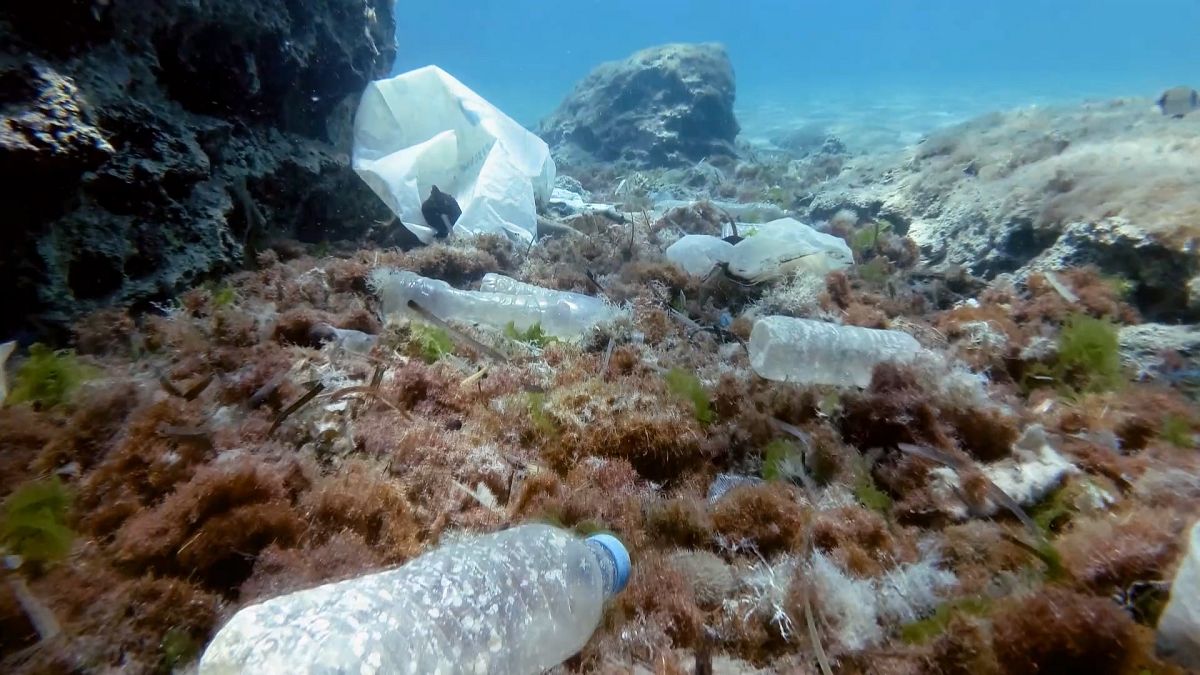Published on
The Mediterranean is the sixth largest accumulation zone for marine litter. It holds only 1% of the world’s waters but concentrates 7% of all global microplastics. This is why French scientists from the Exploration Bleue project have come off the coast of Toulon to study the impact of microplastic pollution in the Mediterranean Sea.
Their expeditions are led by the NGO Expédition 7ᵉ Continent’s 27-metre sailing vessel.
“The Mediterranean is an enclosed sea with a dense population. All human activity ends up in the sea. We study the chemical pollutants carried by plastics. What we already know is that all of them contain chemical pollution,” explains Alexandra Ter-Halle, Director of Research at the French National Centre for Scientific Research (CNRS) and scientific coordinator of the expedition.
The research involves towing two trawls for one hour to collect microplastic samples. These will then be sorted in the laboratories participating in the project. Alexandra has been studying the chemical nature of pollutants associated with plastics for years at the University of Toulouse.
“We measure and weigh microplastics; we analyse their composition. We know that over 16,000 chemical substances are used to make plastics — 4,000 of them are already classified as hazardous.”
When marine animals are exposed to microplastics, chemical substances can transfer into their bodies. Since many of these are endocrine disruptors, they impact the animals’ health. The effects on humans are not yet fully understood, as Alexandra explains:
“We know that endocrine disruptors affect the entire hormonal system in our bodies. They impact fertility and the development of cancer, but we still have many questions about this plastic pollution.”
Science is only just beginning to understand how dangerous microplastics can be for ecosystems and human health. We eat, breathe and drink them — but there’s still much we don’t know. For micro- and nanoplastics, which are often smaller than a thousandth of a millimetre, we lack precise tools to measure them or fully grasp their effects, scientists say.
The European Commission’s Zero Pollution Action Plan aims to cut microplastics by 30% by 2030. Jean-François Ghiglione, a marine microbiologist and research director at CNRS, led an unprecedented sampling campaign across nine major European rivers in 2019. He found microplastics everywhere in ‘alarming’ concentrations.
“Europe is quite advanced in this area,” explains Ghiglione. “We used to have massive plastic pollution, mainly from packaging and single-use plastics. That was the European Union’s initial target. Now, we’re hoping to see a shift in how plastic is perceived.”
So far, plastic has been viewed as waste, and efforts have focused on waste management. Ghiglione hopes the EU will drive a push for a drastic reduction in plastic production, and also come out with a list of chemical substances to be banned from use in plastics.
Europe has made progress in limiting microplastics, but Ghiglione and the scientific community are calling for more. With negotiations for a global treaty still underway, Europe and the international community face a choice: continue managing pollution, or tackle the problem at its root.

